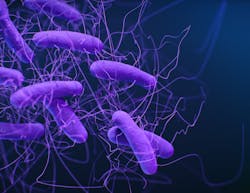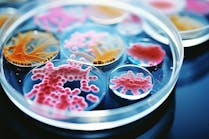World AMR Awareness Week: preventing antimicrobial resistance together
This year, World AMR Awareness Week, taking place from November 18-24, focuses on the urgent actions needed to stop antimicrobial resistance (AMR).
AMR contributes to almost 5 million human deaths from bacterial infections alone each year. This, coupled with the poor state of research and development investment into new antimicrobials, has led the World Health Organization (WHO) to highlight AMR as one of the top 10 global public health threats facing humanity.
The main driver of AMR – which threatens humans, animals, plants and the environment – is misuse and overuse of antimicrobials, both for human health and in food production. To guide the urgent action that is needed, many countries have developed multi-sectoral AMR national action plans (NAPs). The recently-released data from the annual Tracking AMR Country Self-assessment Survey, which monitors implementation of countries’ NAPs, show that while 93% of countries have established AMR NAPs and 68% are implementing some elements of their plans, only 27% of countries have a costed and budgeted NAP, including a monitoring and evaluation framework, and only 11% of countries have made financial provisions to support AMR NAPs in their national budget. There is an urgent need to strengthen AMR governance and leadership in countries, and for additional financial and technical support for countries to develop, prioritize, implement and monitor their NAPs.
In order to improve antimicrobial use in humans globally, WHO has developed the Access, Watch, Reserve (AWaRe) antibiotic book. The publication contains evidence-based guidance on the optimal treatment for over 30 common infections, including when antibiotics are not needed. WHO continues to work with countries on how best to adapt the book for national needs. Editions in French and Spanish will be published during WAAW.
World AMR Awareness Week – with the theme of “Preventing Antimicrobial Resistance Together” – promotes joint actions by leaders and communities across various sectors who are working to preserve antimicrobials and protect the health of people, animals, plants and the environment. This important topic will be a key focus at the UN General Assembly High-Level meeting on AMR in September 2024 at which countries will be urged to make bold commitments to tackle AMR and work towards internationally agreed targets and accelerated action in countries.





